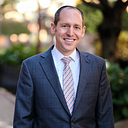Member-only story
Want to Feel Less Anxious? Give Up Some Control
One psychologist’s case for embracing uncertainty
 According to the National Institute of Mental Health, more than three in 10 Americans will have a full-blown anxiety disorder over the course of their lifetimes. Worse, nearly one in four of these cases will be characterized as “severe,” meaning a person is unable to function from day to day or becomes suicidal because of anxiety symptoms.
According to the National Institute of Mental Health, more than three in 10 Americans will have a full-blown anxiety disorder over the course of their lifetimes. Worse, nearly one in four of these cases will be characterized as “severe,” meaning a person is unable to function from day to day or becomes suicidal because of anxiety symptoms.
Among younger Americans, the problem is even more significant. In a recent Harvard Medical School study of more than 67,000 college students on 108 campuses, one in five students used self-injury to cope with anxiety, and nearly one in 10 had tried to commit suicide. In this age of anxiety, more young people die from suicide each year than from cancer, heart disease, stroke, AIDS, birth defects, pneumonia, influenza, and chronic lung disease combined.
These trends are shocking. But more importantly, they seem to make no sense. People are wealthier, more technologically advanced, more productive, and more connected and have fewer reasons to be afraid than ever before in human history. What’s more, today nearly one in four Americans take psychiatric medications. Why are we so anxious when we are (by many counts) better off and have mass access to mood-regulating psychopharmacology?

